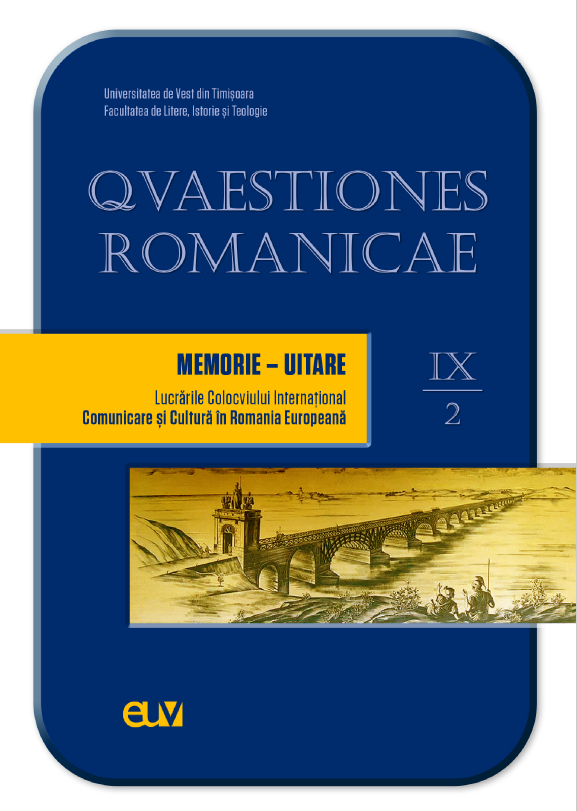La representación metafórica de la dicotomía conceptual ‘memoria’/‘olvido’ en español
Metaphorical representation of memory and oblivion in Spanish
Author(s): Razvan BranSubject(s): Semantics, Cognitive linguistics, Phraseology
Published by: Universitatea de Vest din Timişoara
Keywords: memory; oblivion; conceptual metaphors; phraseology; Spanish;
Summary/Abstract: Memory and oblivion are two complex abstract concepts represented in common language through various metaphorizations. Our study aims to investigate the conceptualizations of memory and oblivion in Spanish from a semantic perspective, based on a corpus provided by general dictionaries of Spanish. The metaphors we found conceptualize memories as concrete entities, which can be created, stored or lost. Also, the mind and memory become a space where memories are stored or disappear. We can see how the language engenders a highly complex cognitive network, made up of relationships between various concepts, such as the mind, memory and oblivion. Two broader metaphorical schemas can be identified: (i) memory is an entity (abstract or concrete, marked [± animated], [± human]) and (ii) memory is a space (container, origin, destination, etc.), which are made up of other cognitive subschemas. Memory and oblivion represent active elements, processes of the cognitive system, through which memories (‘concrete objects’) are recorded and stored in a specific place. The metaphors found are included in a huge conceptual system, in which relationships are established with other concepts (past, experience, honor, cognitive and sensorial processes etc.).
Journal: Quaestiones Romanicae
- Issue Year: IX/2022
- Issue No: 2
- Page Range: 361-374
- Page Count: 14
- Language: Spanish

